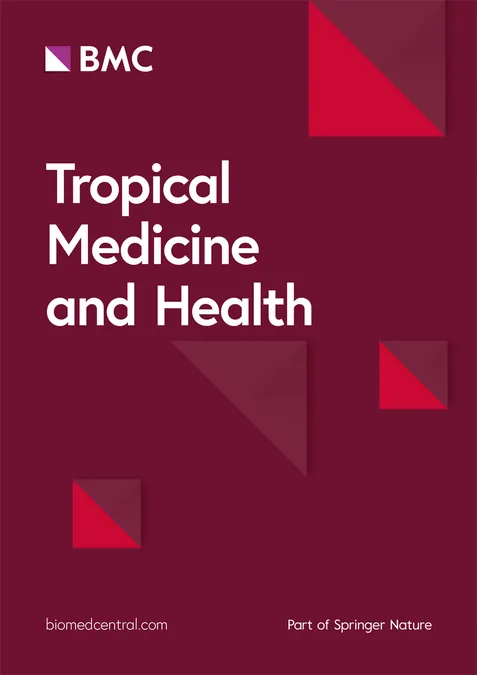
Closing the Gap: The Case for Mandatory Hepatitis B Vaccination Among Healthcare Workers in Sub-Saharan Africa
2024-11-06
Author: Rajesh
Introduction
In a bold call to action, experts are urging the introduction of mandatory Hepatitis B vaccinations for healthcare workers (HCWs) in sub-Saharan Africa (SSA) to address alarming gaps in vaccination coverage. Hepatitis B virus (HBV) poses significant health risks globally, infecting approximately two billion people, with the most severe impact seen in Africa and Asia.
The Risk for Healthcare Workers
Healthcare workers, the frontline defenders against this virus, are unfortunately among those at the highest risk. Reports indicate that many HCWs, including medical students, are vulnerable to needlestick injuries, which can expose them to the virus. Alarmingly, vaccination rates among these essential workers are shockingly low: only 42% of HCWs in Nigeria are fully vaccinated compared to 97% in higher-income nations like France.
Factors Contributing to Low Vaccination Rates
Several factors contribute to this concerning trend, including vaccine stock shortages, high costs, and the need for time off to receive vaccinations. Tragically, many HCWs resort to post-exposure prophylaxis (PEP) after encountering needlestick injuries, often grappling with the dire financial implications of obtaining necessary treatments like Hepatitis B immunoglobulin (HBIG). In one case reported in March 2024, a Nigerian doctor faced a crisis when HBIG was unavailable in his state after a needlestick injury due to an unavailability of affordable treatment options.
Need for Change in Approach
While vaccinations in low- and middle-income countries (LMICs) remain optional, the trend of compliance is disheartening. Studies show that when vaccinations are available, few actively seek them out, leading to missed opportunities and exacerbating the vaccination gap. It is time for a change in approach: implementing mandatory vaccinations could significantly improve rates among HCWs.
Cultural Context and Acceptance
In contrast to many Western cultures, SSA’s collectivist ethos may facilitate the acceptance of compulsory vaccinations. A shift from permissive to mandatory policies could protect healthcare workers—an essential, yet often underappreciated, group in fragile health systems. Acceptance for mandatory hepatitis vaccinations is notably high, with studies indicating up to 85% approval among the population.
Proposals for Implementation
The proposal suggests implementing free, mandatory vaccinations for all healthcare workers, funded by hospitals or educational institutions through legislative support. Additional measures could include making vaccinations a prerequisite for clinical practice and facility accreditation. The Centers for Disease Control and Prevention (CDC) has outlined rapid vaccination protocols that can yield results in as little as 21 days, further accelerating immunization efforts.
Addressing Ethical Concerns
Beyond the logistics, ethical concerns regarding mandatory vaccinations can be navigated through conscientious exemptions. The conversation around vaccination hesitancy must recognize cultural beliefs that may influence acceptance. Proactive health promotion and effective communication strategies leveraging media can play crucial roles in enhancing public awareness and fostering vaccine acceptance among healthcare workers.
Conclusion
In conclusion, the push for mandatory HBV vaccinations in sub-Saharan Africa is not just about protecting healthcare workers but is also a vital step toward curbing the transmission of this dangerous virus. By emphasizing legislation, international support, and community engagement, SSA can move closer to achieving the global objective of eradicating HBV as a public health concern by 2030. The window of opportunity is here—will the global health community step up to safeguard its health workers and, in turn, the communities they serve?




 Brasil (PT)
Brasil (PT)
 Canada (EN)
Canada (EN)
 Chile (ES)
Chile (ES)
 España (ES)
España (ES)
 France (FR)
France (FR)
 Hong Kong (EN)
Hong Kong (EN)
 Italia (IT)
Italia (IT)
 日本 (JA)
日本 (JA)
 Magyarország (HU)
Magyarország (HU)
 Norge (NO)
Norge (NO)
 Polska (PL)
Polska (PL)
 Schweiz (DE)
Schweiz (DE)
 Singapore (EN)
Singapore (EN)
 Sverige (SV)
Sverige (SV)
 Suomi (FI)
Suomi (FI)
 Türkiye (TR)
Türkiye (TR)